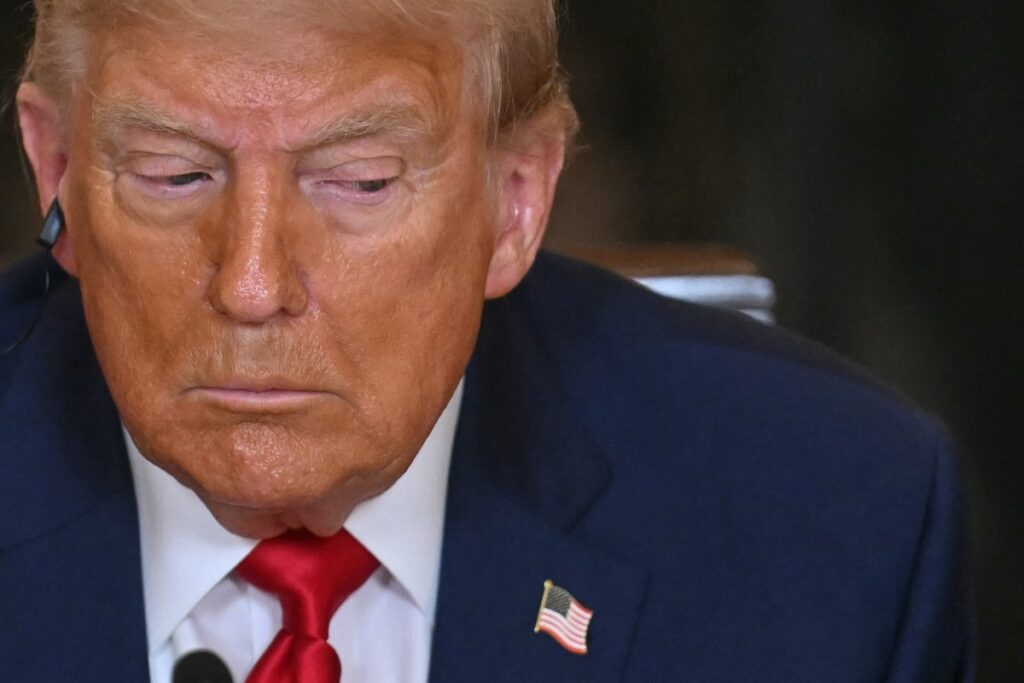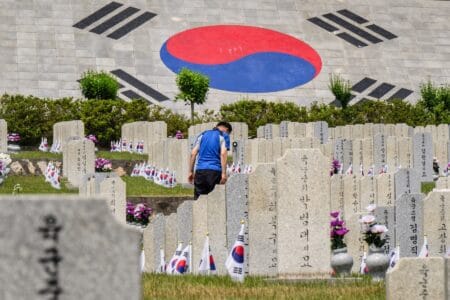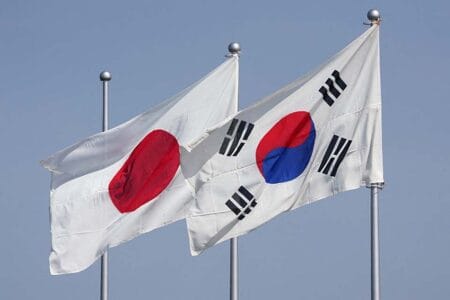July 10, 2025
SEOUL – An official at Seoul’s Foreign Ministry said Wednesday that the latest South Korea-US defense cost-sharing deal for the 2026-2030 period — the Special Measures Agreement signed last year under then-US President Joe Biden — should be upheld.
The remark came as US President Donald Trump raised the pressure on South Korea, suggesting that Seoul should shoulder more of the costs of stationing US troops here, on Tuesday, local time. The day before, Trump said he would start imposing 25 percent tariffs on Korean products.
“It is inappropriate to react and assess every single remark made by a foreign leader,” the Seoul official said in a statement released in the afternoon.
“(However,) the SMA contributes to stable conditions for the stationing of US Forces Korea and strengthens the South Korea-US combined defense posture. Our government’s stance is that the 12th SMA, which was effectively agreed upon and is in effect, should be complied with and implemented,” the official added.
The latest SMA states that South Korea is to pay 1.52 trillion won ($1.1 billion) next year, up 1.4 trillion won compared to this year. Under the SMA, first initiated in 1991, Seoul partially shares the cost of labor, logistics and construction related to the presence of USFK.
Trump told reporters during a Cabinet meeting in Washington, “We supply the military to many … very successful countries. I mean, South Korea is making a lot of money and they are very good.”
He added that South Korea should be “paying for their military,” while highlighting that Seoul pays US “very little” despite US troops having “stayed” and “rebuilt” the country following the 1950-53 Korean War.
“I got them to pay billions of dollars, and Biden then canceled it when he came in. I said for South Korea as an example, you know, we give you free military — (for) essentially very little — and I think you should pay us $10 billion a year,” he said.
Trump claimed that Biden cut South Korea’s defense contributions “to nothing” after he got Seoul to agree to pay more during his first term.
“They probably went to him and they said, ‘Listen, Trump treated us terribly, and we shouldn’t be paying anything.’ And he cut it down to nothing,” Trump said. “That’s what happens. It’s ridiculous.”
Besides growing concerns surrounding defense costs, Seoul is scrambling to come up with a response to Washington’s “reciprocal” tariffs on South Korea and other countries. Trump on Monday unveiled a letter he sent to South Korean President Lee Jae Myung, which said that the 25 percent tariffs on South Korean products will be imposed starting on Aug. 1. The “reciprocal tariffs” were initially set to take effect on Wednesday, following a 90-day pause.
National Security Adviser Wi Sung-lac recently met with US Secretary of State Marco Rubio, to whom Wi expressed hopes for a summit between Lee and Trump at an early date.
Observers say that the negotiations related to both security and the economy are likely to be negotiated as a “package deal” between Seoul and Washington.
Additionally, there have been growing concerns in South Korea that Trump would demand Seoul shoulder more of the costs of US Forces Korea and increase spending on its own military. Trump has already pushed NATO member countries to spend 5 percent of their economic output on their militaries by 2035.
During the 2019 defense cost negotiations, Trump demanded that South Korea pay $5 billion for the USFK presence, compared to the current level of around $1 billion. While campaigning for president last year, he said Seoul would be paying $10 billion if he were in the White House.







